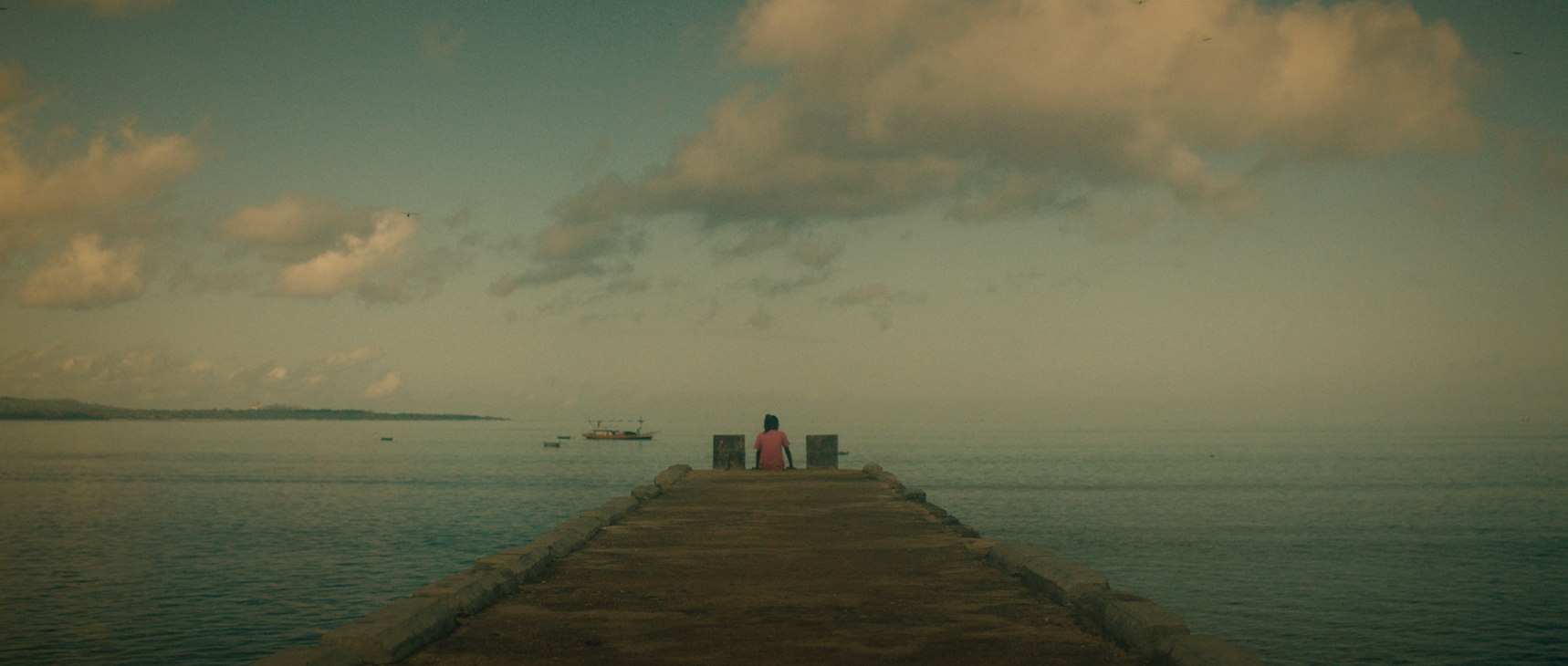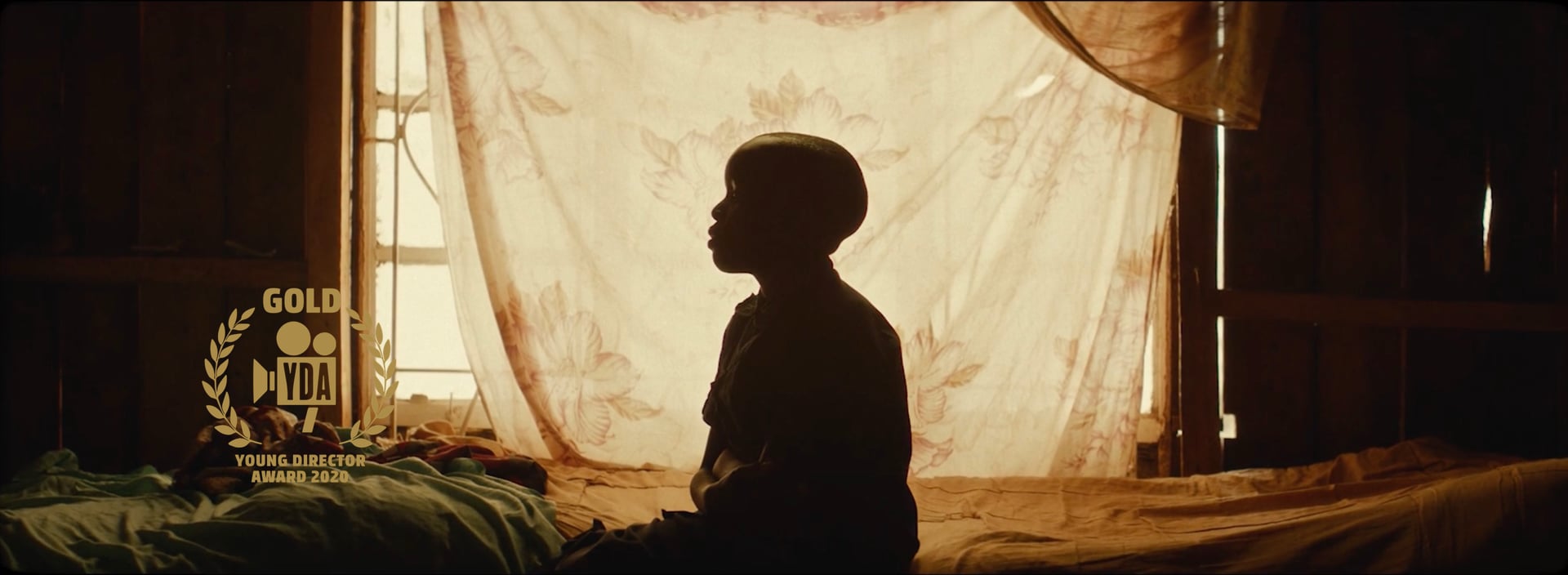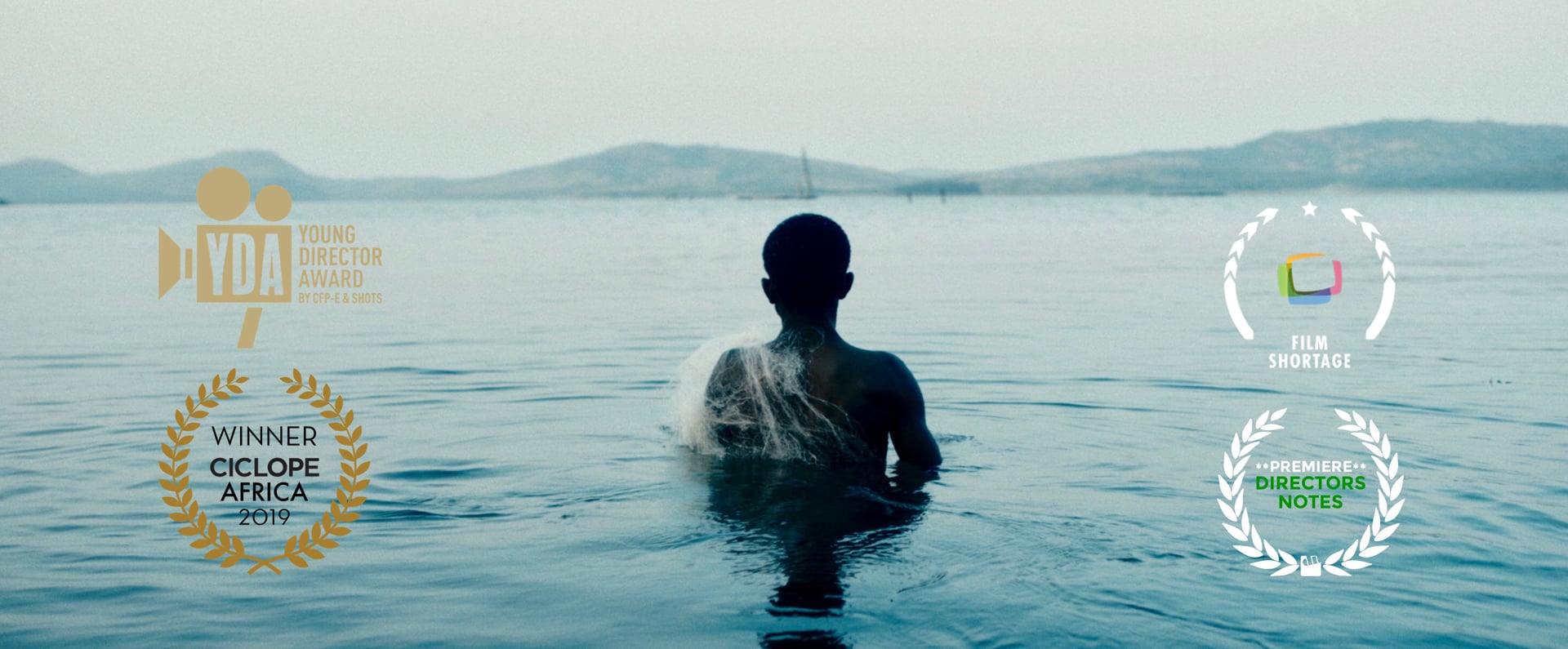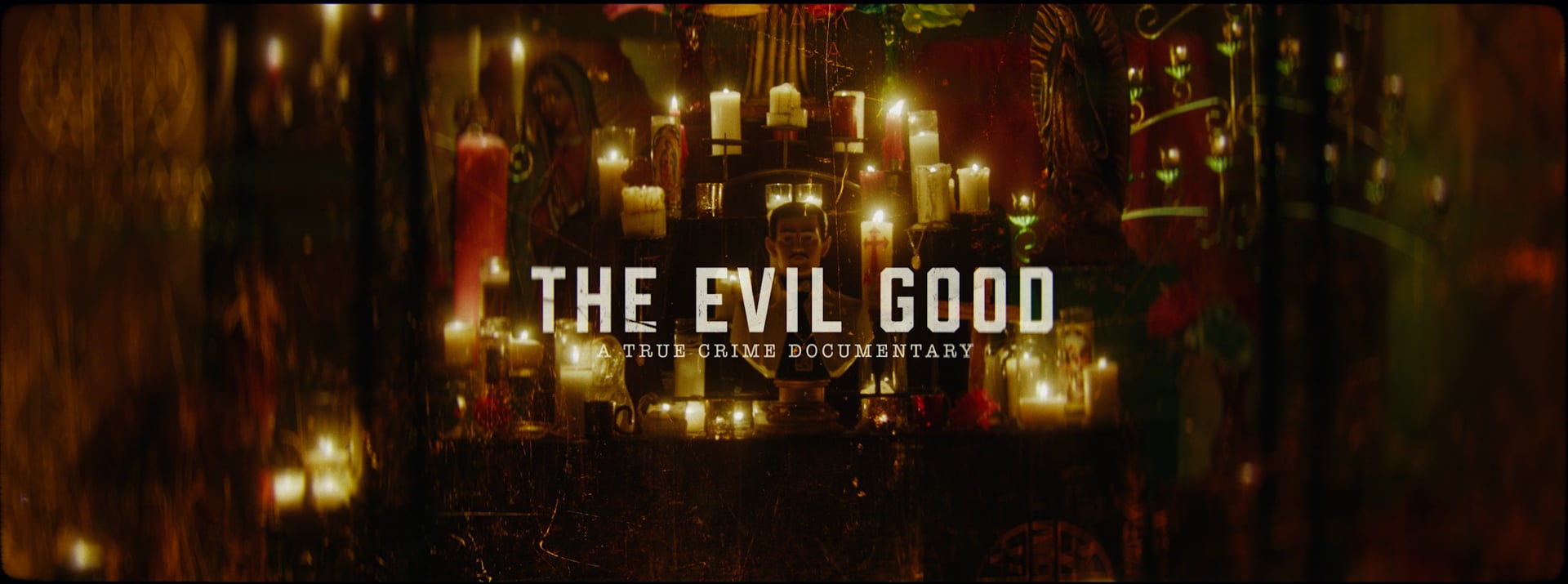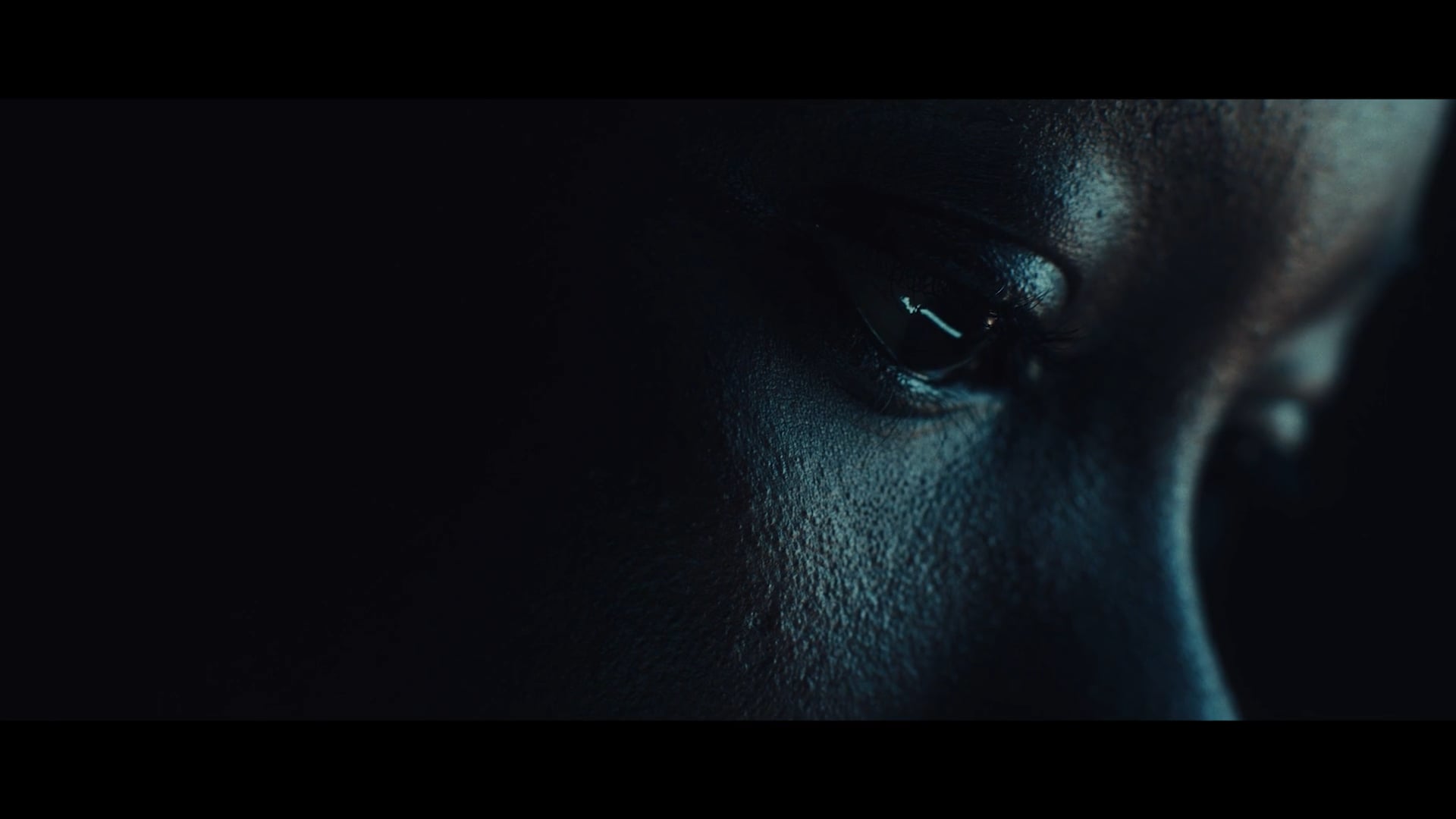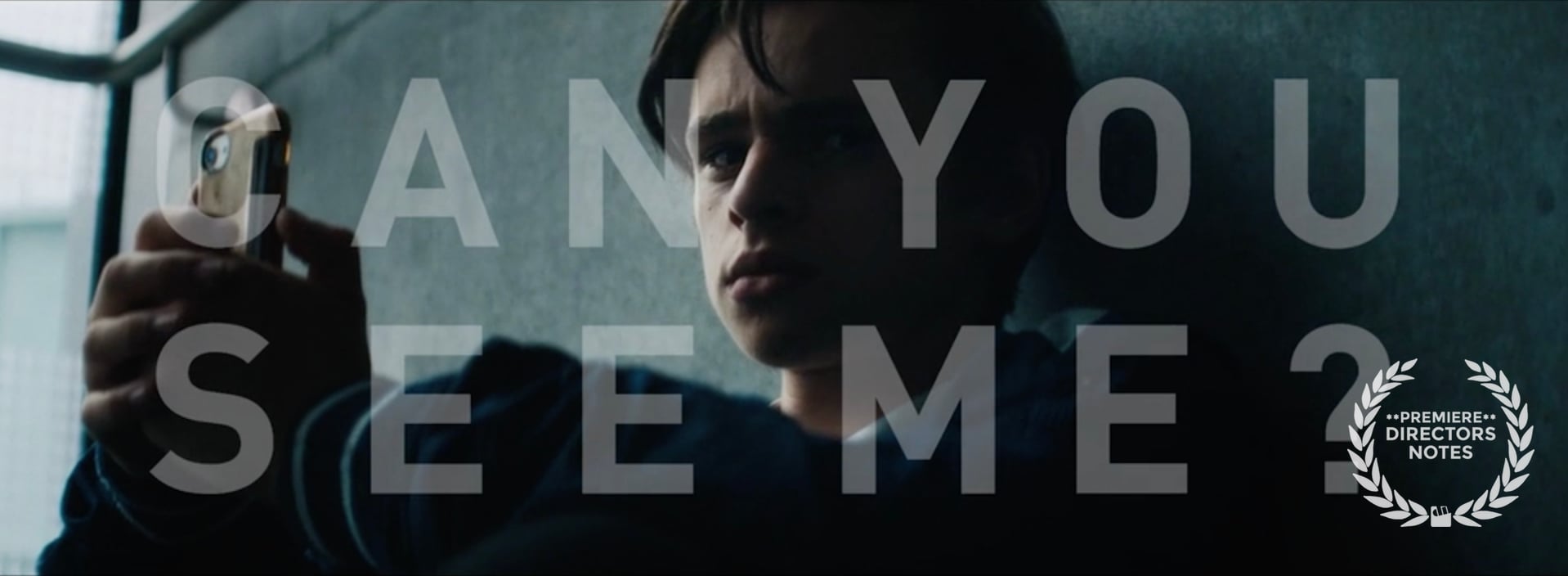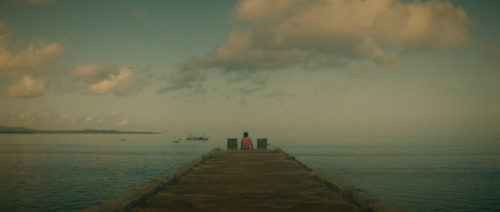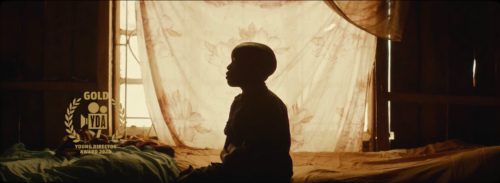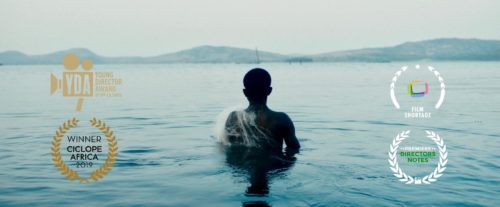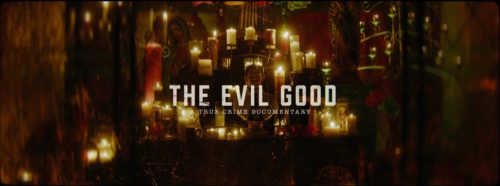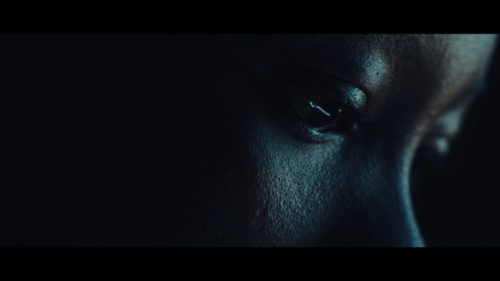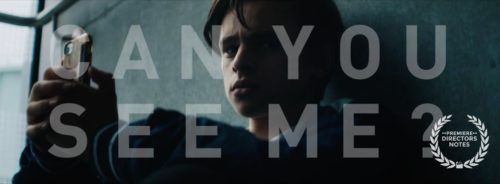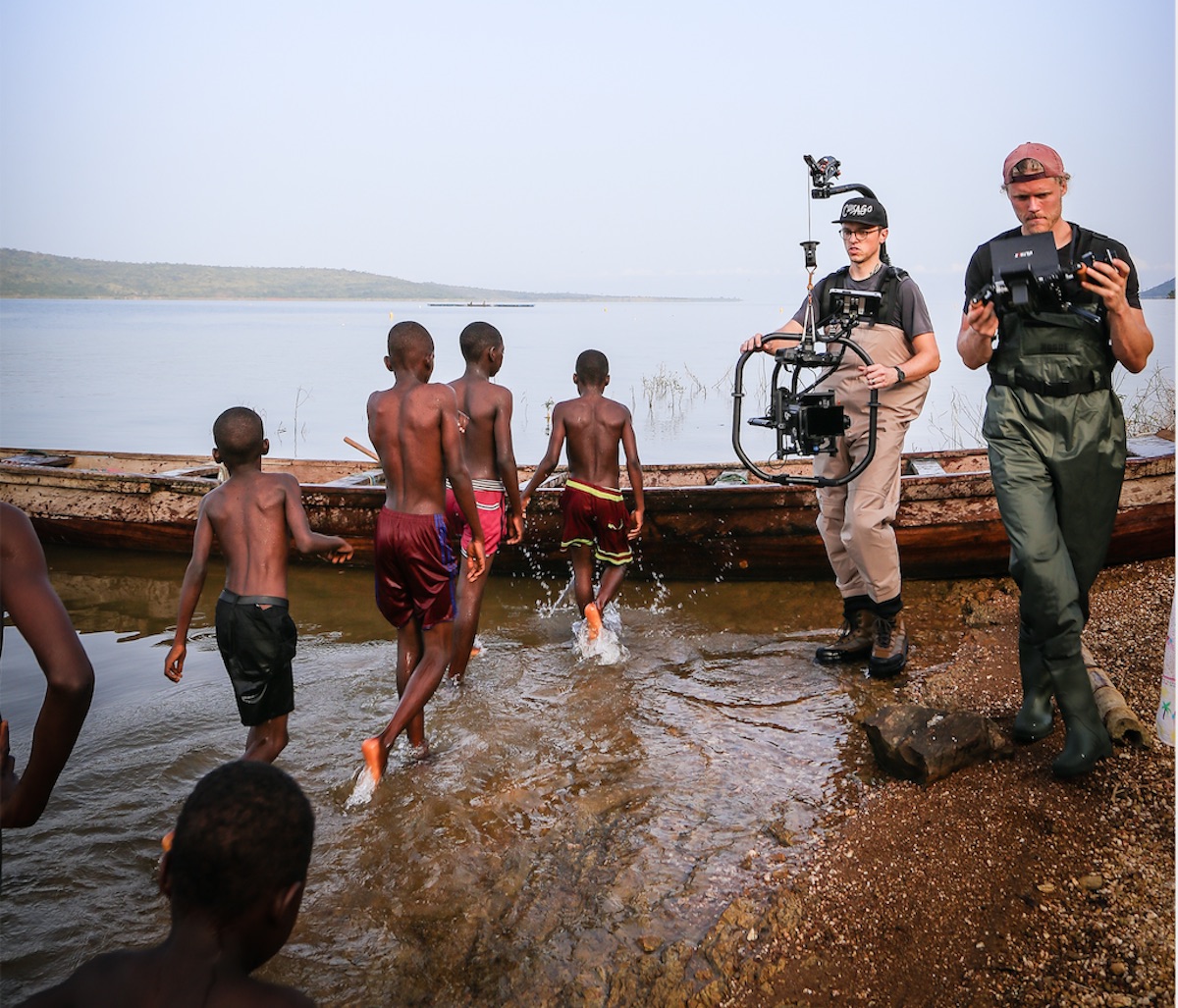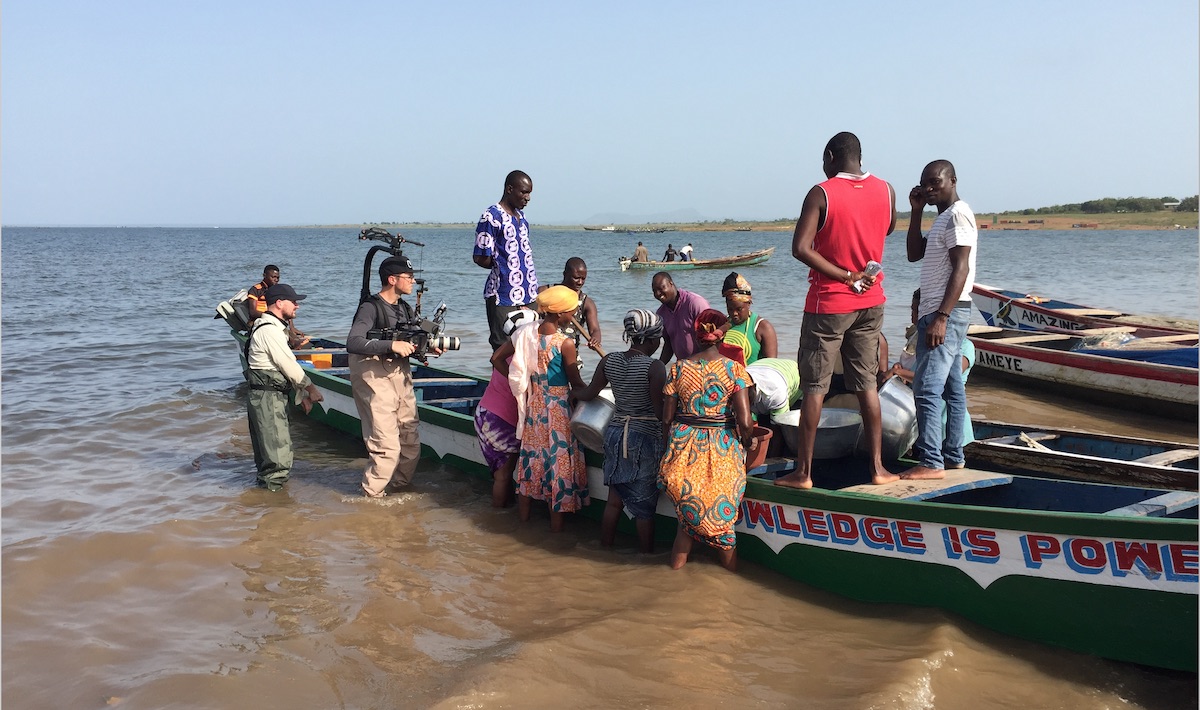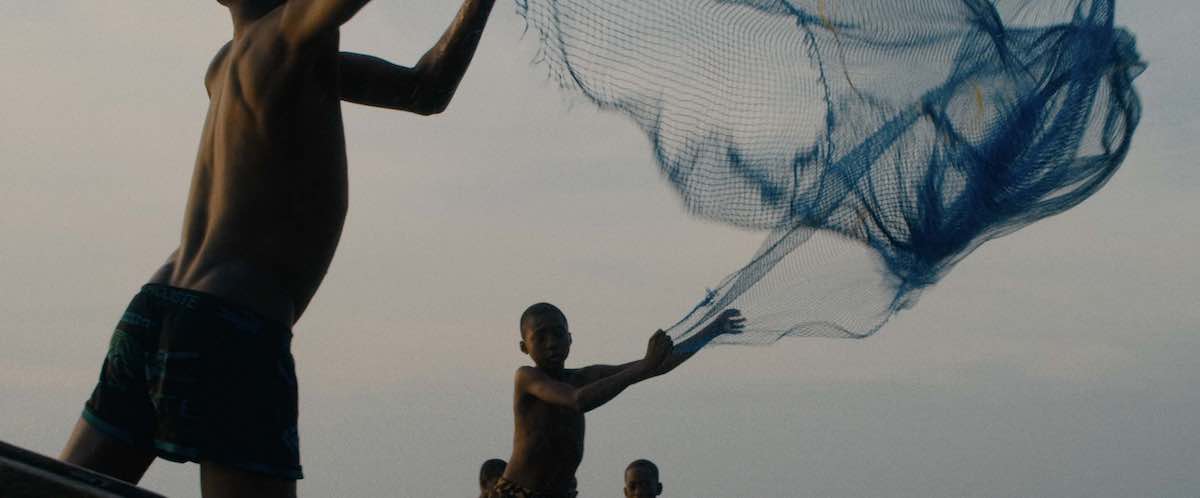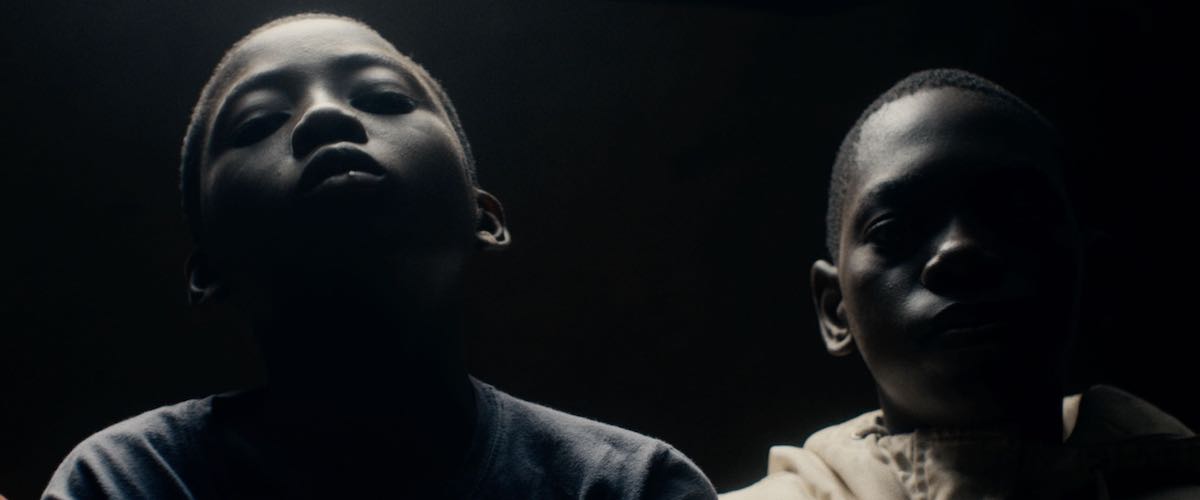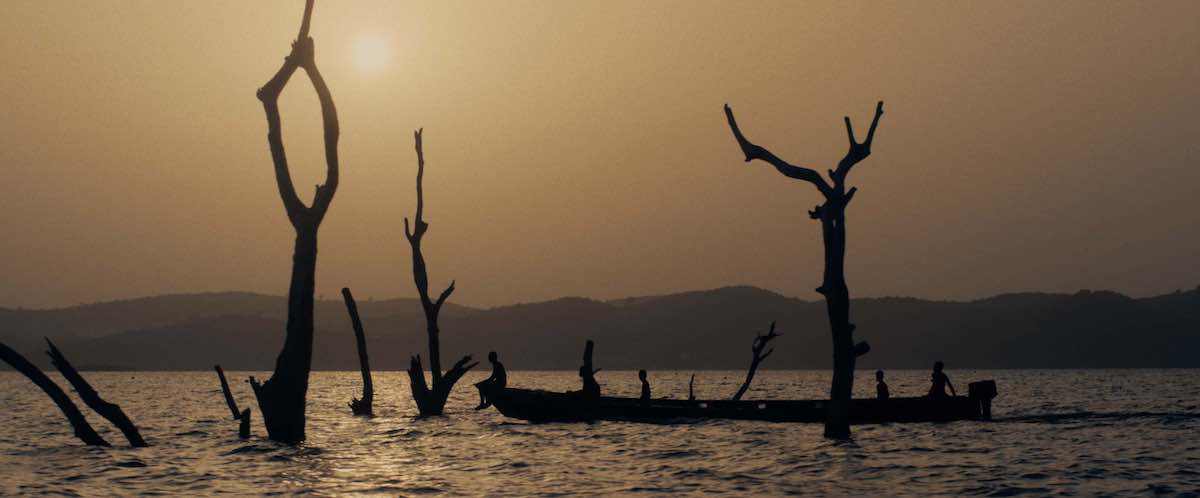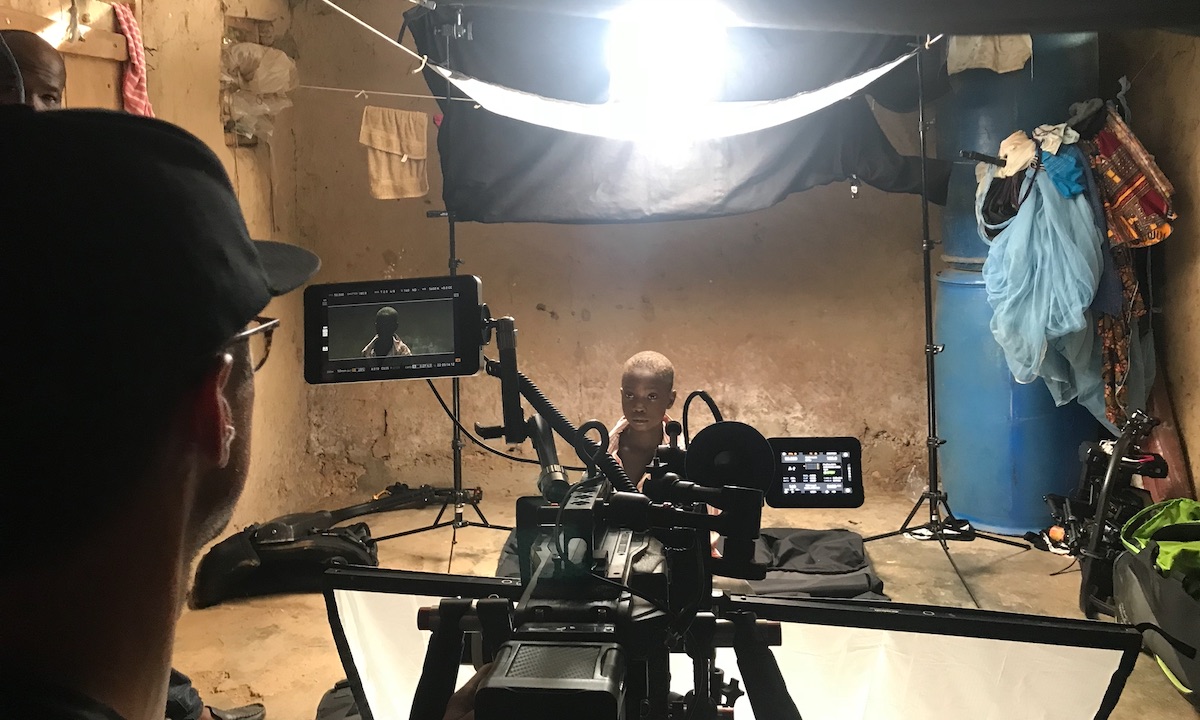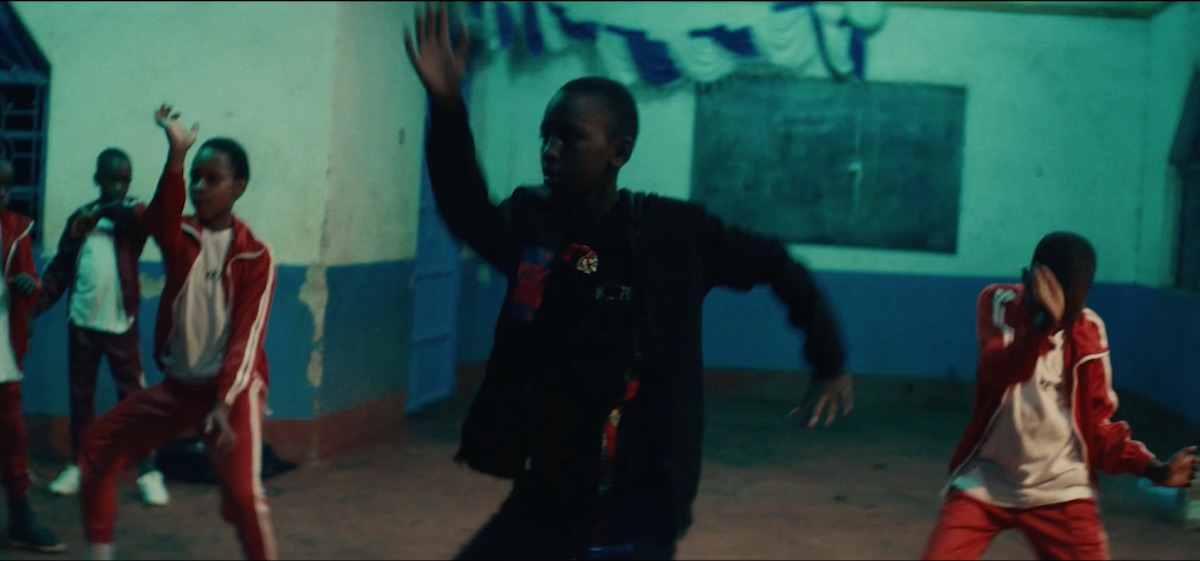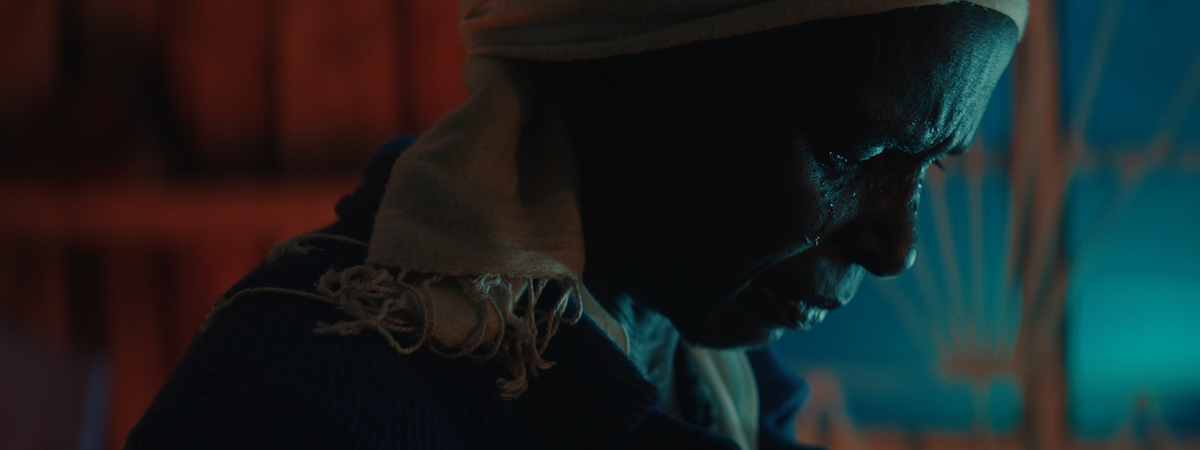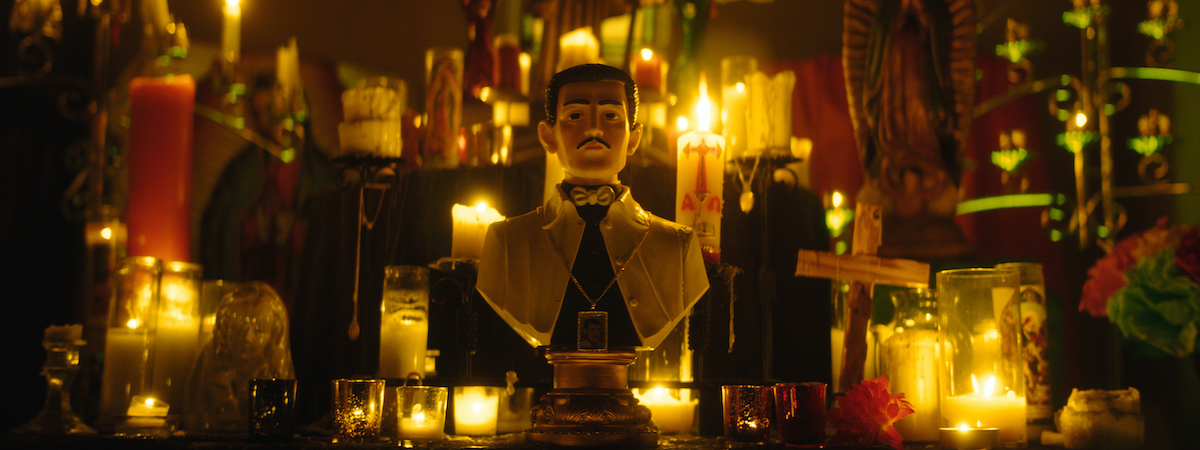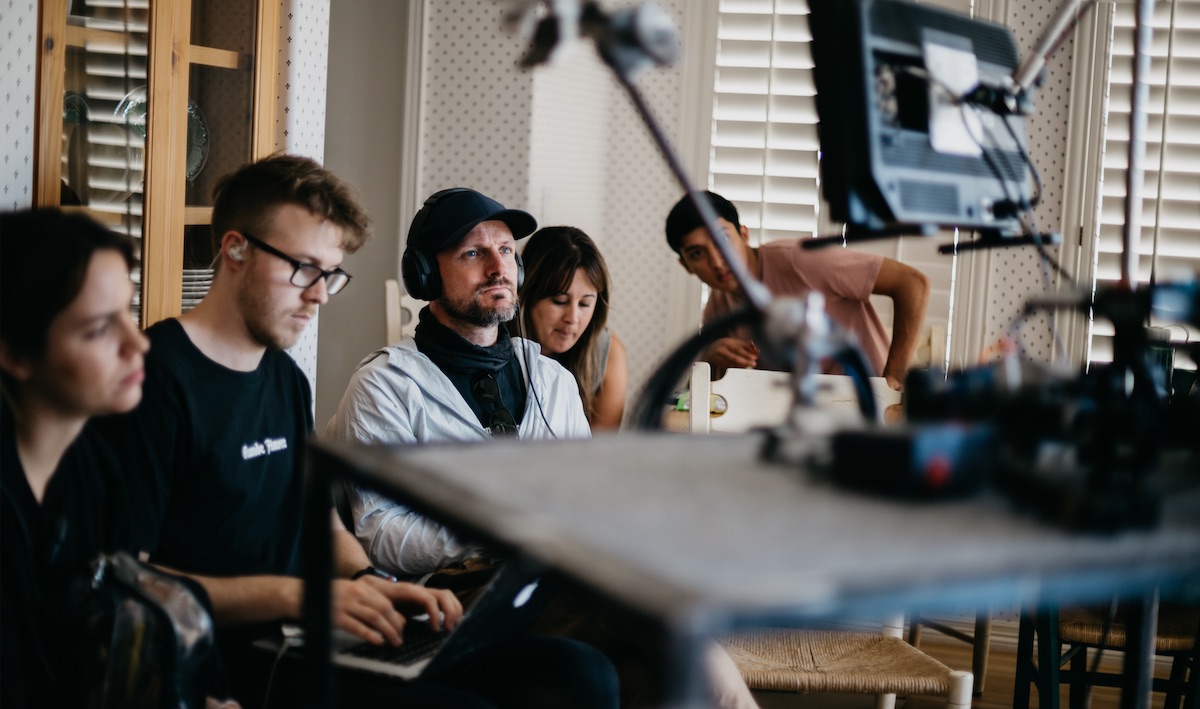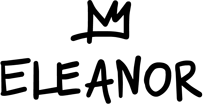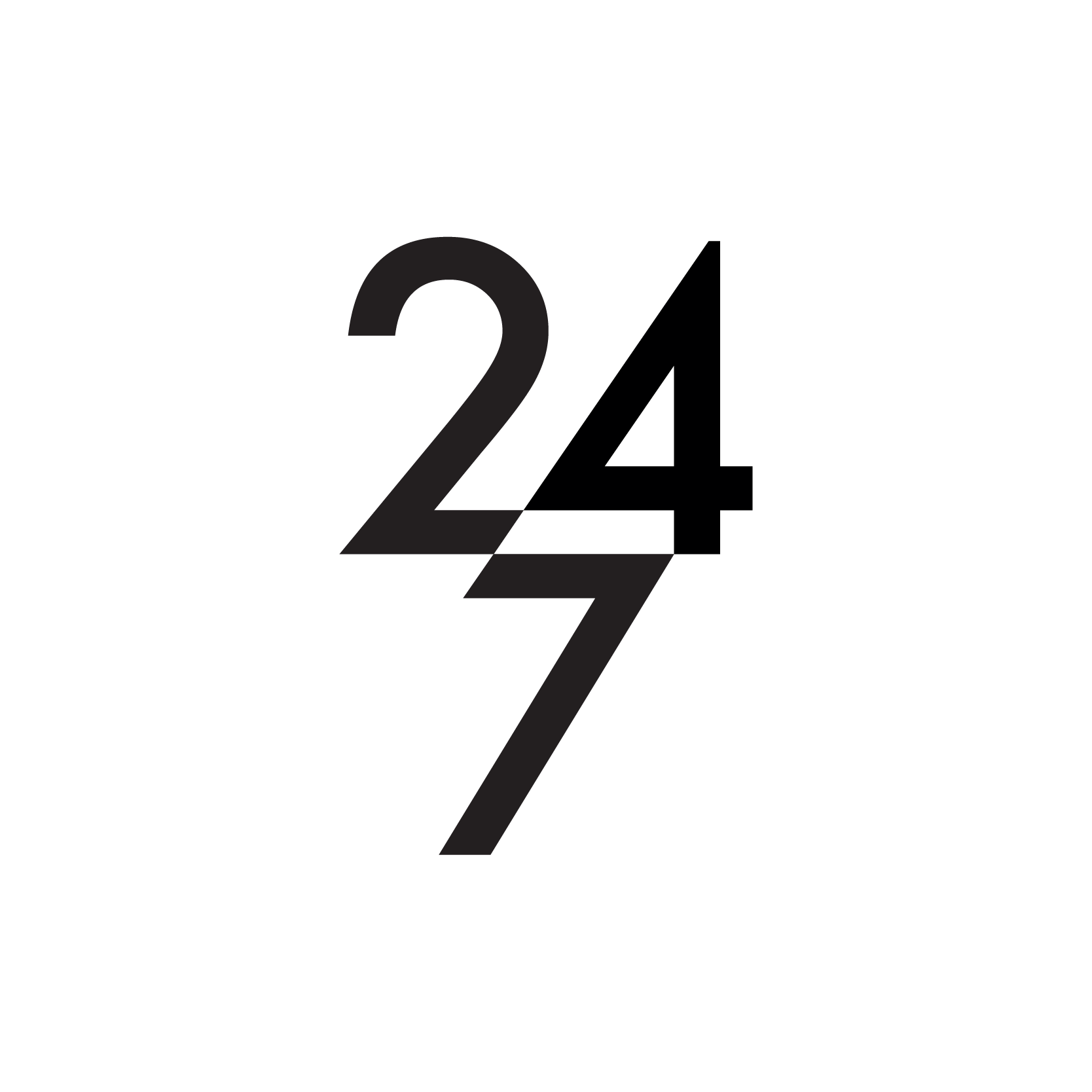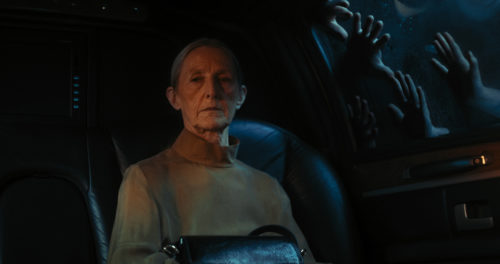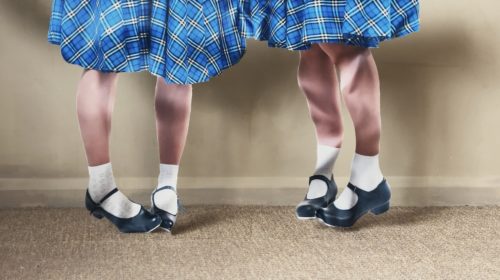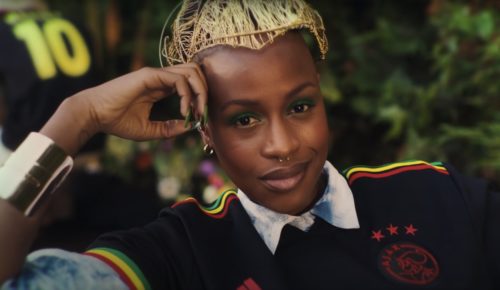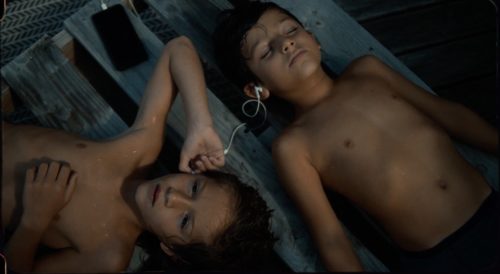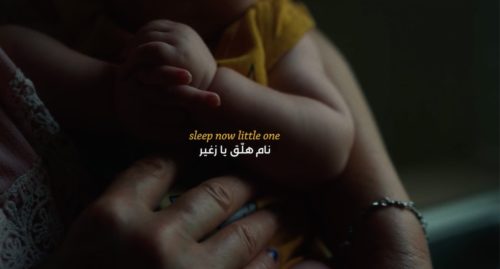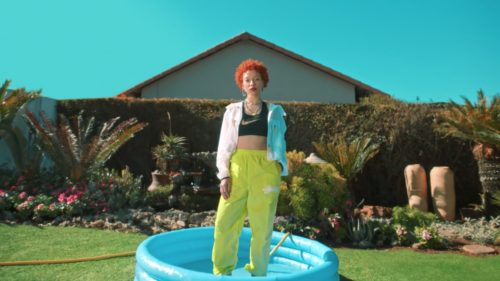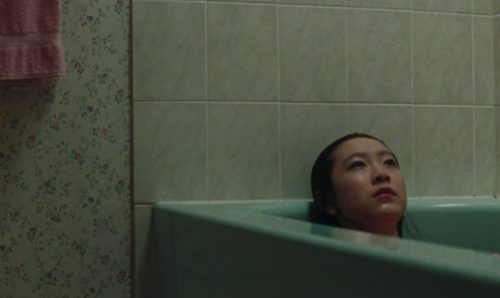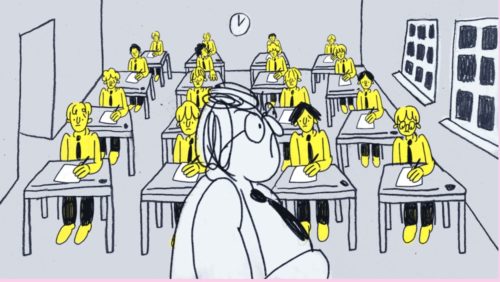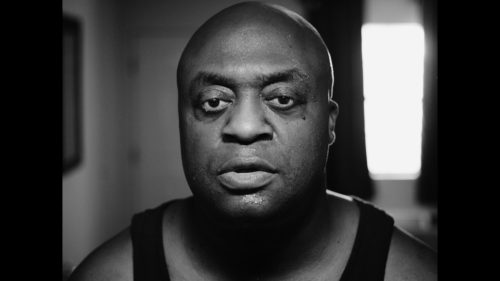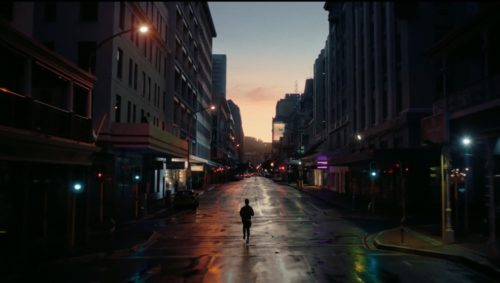Your work mixes real-life events with cinematic fictional elements to create evocative retellings of true stories; what does a true story give you that a fictional one doesn’t? And is there ever a line in the sand that you’re conscious of crossing while fusing the poetic and the factual together?
I think I’m drawn to true stories because there is already a rich seam of drama to draw from and explore. The blank canvas doesn’t seem quite as stark and scary than starting entirely from scratch. Any story, whether fact or fictional, still needs to contain all those classic elements that make narratives work – pity, fear, catharsis. I think true stories have that extra emotional layer that once you have journeyed on some wild story with your characters, there’s this added punch when you realise that these events actually happened to a real person.
There are moral and ethical dilemmas that I’m constantly navigating when telling true stories…they don’t always play out in ways that are initially conducive to the story structures that we know work for audiences. I’m always holding this tension and I find myself oscillating between what is factually true and what is emotionally true. So while you might swap out locations or amalgamate beats to assist with making the story engaging, I never break from what is emotionally true of a particular beat or more importantly the spirit and motivation of a character. I try as honestly as possible to accurately represent the people’s stories I’m retelling because for them it’s not just some interesting film, it’s their lived experience and I’m trying to hold that with the greatest care and respect.
What was your childhood like growing up in small-town 80s New Zealand? Was there one moment when you realised you wanted to work in film?
New Zealand did feel like the ends of the earth when I was growing up, so far from anywhere, there was also a certain amount of ‘cultural cringe’ where we didn’t esteem or respect our own stories, so as a result I found myself connecting with films and tv shows as a way to somehow feel closer to what I thought was happening in the rest of the world.
My first clear cinematic experience, I was probably four years old, too small to see over the cinema seat in front of me so ended up sitting in the aisle utterly transfixed for 90mins by Star Wars. I had no idea at that point I’d end up being a filmmaker, but I do remember the feeling of being transported to another place and another reality….to be lost in the world of someone’s creation was nothing short of magic and I wanted to be able to do that.
I ended up at film school and had my sights set on becoming an editor, I always thought I would be the one helping other people tell their stories rather than tell my own. With the advent of affordable digital cameras and editing software I found myself in Uganda around 2001, I documented the trip and made a short little story on the experience there, it got played to an audience and they went crazy and I think it was at that point I realised maybe I have a point of view and I can tell stories as well….since that moment it’s been a process of constantly refining that lens and leaning into those innate instincts and learning to become confident in that voice.
Volta
Your films ‘Volta’, ‘I Will Dance’, ‘The Fisherman’ and ‘Can You See Me?’ give a voice to marginalised and disadvantaged groups. What draws you to these stories and are there any challenges in telling them?
I’ve always been attracted to the stories of the overlooked and underestimated. For me there are far more interesting things to be learnt when things go wrong than when everything is laid out in a straight and comfortable path.
Apart from the logistical challenges of filming in remote parts of the world, it again comes back to how to hold the people whose story you’ve been entrusted with. For people that have already often endured so much hardship, I’m constantly thinking “how does my treatment of this story add to their dignity and not take from it?” I think of one story I shot in Uganda about Grace, an incredibly strong young woman who also happened to be disabled – she was born without limbs and suffered physically and emotionally as she was ostracised by parts of her community. I intentionally held off revealing her disability until the audience had enough time to connect with her as a capable young woman first, rather than only seeing her through the lens of disability.
I’ve not always got it right and so I’m always trying to see how I can make the subject the hero of the story and I’m listening to my local collaborators to get a read on how to tell the story in the most sensitive way possible that builds up rather than tears down with negative stereotypes….I’m still learning and refining how to do this better.
Evoking empathy is something your films do incredibly well. Through empathising with your characters is there anything you’ve learnt about yourself and has it changed you?
I think what strikes me the most about the people I’ve met through my films is how strong and resilient they are. A lot of them have had to overcome traumatic events and in many cases are still dealing with the most extreme hardships, yet for all that they have endured they are still standing and often with an optimistic outlook that is humbling. I think of Gladys from my most recent film, Nitacheza, an elderly widow who takes in an orphan, sells everything she owns and walks from clinic to clinic looking for medical answers to some very serious challenges facing her child. If faced with the same circumstances I don’t know if I could last five minutes let alone still keep a positive and optimistic outlook on life.
It makes me think about the lottery of where you are born and how that, more than talent or hard work is a critical determinant on your journey in life. I wrestle with the power imbalances and the fact that I get to go in and make a film speaks to the advantages my place of birth has afforded me, so at times it can be an uncomfortable wrestling with how to sensitively navigate that space with integrity. I’m always asking myself what if someone came to make a film about me and how would I like to be treated and how would I like my story to be portrayed…. there’s a lot of trust involved and I try my best to be worthy of that trust.
What’s the first thing you look for in an idea, script, or story?
I’m really looking for three things…story beats that have an emotional hook, a visual vibe that is arresting and an angle that is surprising. I’m asking does this story “make me feel something genuine” and does the visual action, locations or characters peak my sense of curiosity. Sometimes you’re lucky enough to get all three and other stories you have to make do with at least one of those aspects and do the best you can.
Volta
The documentary form has evolved a lot in the last decade. How do you see the genre continuing to evolve? Is there another genre you’d love to explore or blend into your work?
I feel I owe a huge debt of gratitude to documentary filmmakers like Errol Morris, Werner Herzog and more recently Bart Layton. These are filmmakers that have consistently pushed the genre in really interesting ways… getting that alchemy right in entertaining on the way to informing.
One of my favourite writers said “when the front door of the intellect is closed the backdoor of the imagination is open”, that’s become something of a guiding light for me in the way I approach my films…how can I bypass the argument or ideology and engage the imagination as a trojan horse in which the soul is open to see something new? I think the questions are always way more interesting than the answers and films that have you thinking about how those questions play out in your own life, for me are the most successful… films that are actively engaging me with life’s moral and ethical dilemmas rather than playing to my passivity are what are the most interesting to me.
I’ve discovered I really like working with actors and so I’ve recently been working on projects that blend real stories with narrative recreation. Inspired by films like The Imposter, American Animals and Wormwood, I’ve been trying to blend cinematic craft with true stories and the documentary form… I’m learning a lot and enjoying the challenge.
Compassion, Volta
You’ve travelled to over 40 countries in your lifetime, and you’ve shot recently in Africa, Lebanon, and the UK. Other than the weather, were there any unique challenges posed that you never saw coming?
Storytelling in far flung places of the world is certainly not without its challenges, we’ve been caught in an 8.1 earthquake in Mexico, had to pause interviews because gunshots were spoiling the audio, had to quickly exit cartel controlled favelas because we had outstayed our welcome, been stuck on Indonesian islands for days waiting for lost gear to maybe show up… but it’s all part of the adventure.
Sometimes I’m working in three languages and things can get lost in translation fast. I had one issue where I’d ask a question in an interview and the translator would ask a completely different question because they weren’t comfortable to ask my actual question… I didn’t find out till I got a word for word transcript back a few weeks later and by that time there’s nothing you can do.
In my film Volta we had done all the research and arrived in Ghana ready to shoot this incredible story, we start shooting the first interview where it became apparent that the interviewee was completely confused and bemused by my questions. It soon became clear that the story we had come to tell wasn’t one person’s story, but a conflation of two separate stories… our shoot was completely torpedoed within the first hour of a 10-day trip.
We travelled up to Lake Volta deflated and resigned to the fact that I’d have to shoot something completely generic… but as luck would have it our curious photographer struck up a conversation with Ebenezar, one of the boys that was travelling with us… turned out he had the most heart wrenching story of being sold into child labour on the lake when he was five. So Helen was feverishly texting me on the bus ride that we had found our story… so we completely rewrote everything in an afternoon and set out to tell this completely new story. We street cast on the fly and started shooting our scenes until the end of day two when the young boy we had cast as our young Ebenezar became quite ill and was admitted to hospital, the good news is that he recovered, but not in time to finish our shoot so we had to rewrite the script for a third time to try and make the story work when we couldn’t shoot with our main character. The film turned out quite well in the end, but it was almost killed off at every turn.
Nitacheza, I will Dance
What’s next on your bucket list? Is there another issue or cause you would like to shed light on, or story you’d love to tell?
In lots of ways I’ve become known as the ‘cause guy’ and while I do love that kind of work and will always continue to be involved with it, I do like to mix things up and I’m well overdue to make something with less of the weight of the world on its shoulders. I love working with actors so to work on more scripted projects whether that’s in film, TV or advertising that’s really interesting to me particularly when I can bring the realism of a documentary lens to fictional worlds. So Apple, Nike, Netflix, U2, The National, if you’re reading this I’d love to make a film with you!
In many of your films, you work with non-actors (or at least those with little traditional training.) What’s your process for getting a performance out of real people?
I heard Gareth Edwards (Monsters, Godzilla, Rouge One) say in an interview regarding his own work with non actors that there is no one better to play you than you. It’s going be an Oscar winning performance every time, so really that’s all there is to it, get people to do what they would normally do and be who they are, capture it in a cinematic way and then try and bend the narrative around that.
I’ve been incredibly lucky that most of the non actors I’ve worked with have been very willing participants and I typically cement that by showing my own vulnerabilities… it’s only fair that if I’m asking them to share personal truths that I should be just as open with mine. In the case of kids I find that if you can lose your shame and just be a complete goofball they open up right away. I’ll jump rope with them, let them destroy me in soccer or in the case of Nitacheza/I Will Dance, I was busting out terrible dance moves just out of frame as the kids were performing in frame.
In the end it’s about creating a safe space where I’m not asking them to perform like marionettes on strings, but we are crafting something together. So it’s about having time to build that rapport and to be flexible and know when something isn’t working and try something else instead. In The Fisherman for instance, we had initially planned on telling the story from the little girl’s perspective, but as it turned out she wasn’t particularly co-operative so it became a matter of being able to pivot and so I decided to tell it from the mum and dad’s perspective instead.
Ansel Adams said “chance favours the prepared mind”, so while I always go into things with a plan and arc I want to follow, I’ve also gotten used to being ready to throw out my preconceived ideas and go with what’s working – I’ll admit it’s not for the faint of heart and it’s often been terrifying to have to throw everything out and start again mid-shoot, but it can also lead to wonderful unexpected discoveries.
Nitacheza, I will Dance
As a director who edits much of his own work, are you editing in your mind as you’re shooting? Do you ever miss those second set of eyes in the edit suite? And do you think you will you ever reach the moment when you hand over the editorial reigns?
I’m usually editing in my head the whole time, which is a blessing and a curse. That editor’s eye has gotten me out of a lot of trouble knowing how I can stitch disparate things together to make something coherent out of chaos. On the flip side sometimes that dot joining does pull you out of the emotion of the moment and sometimes I’ve found myself not fully immersed in the performance or what’s going on in front of me as part of my brain is putting out creative fires elsewhere.
I have found it difficult to hand over the editing reigns as I find editing is a lot like playing an instrument, there’s a certain internal rhythm and cadence of how I’m feeling a sequence and that can be difficult to translate to an editor. Having said that I’m just finishing up working with an editor for the first time on my first feature documentary The Evil Good. After doing an initial and quite awful first edit, I was quite thankful to be able to put it in the hands of another set of eyes and after I got used to not being on the tools I quite enjoyed the process. Having that second opinion does help make things stronger.
The Evil Good
You’ve seemingly worked in every department from the edit suite to the sound department to being an assistant camera operator. If you had to hang up your directing hat (other than editing) which department would you most love to slide into?
I’ve been quite thankful to have been involved in almost all filmmaking departments over the years and that has only helped me now as a director to better refine how to communicate to the different departments to get them to bring their best.
I’ve always been a bit of a sound nerd and it’s a part of the process I enjoy the most hearing how the score and sound work to elevate the visuals. I think if I was to hang up my director’s bullhorn I’d slot quite well into a sound design team.
Finally, if you could have directed one other piece of advertising and have it added to your reel what would it be and why?
It’s tough to narrow it down to just one as there is so much great work constantly being made. But I think the one piece that I’ve come back to more than any other over the past few years is James Rouse’s affecting film “Hope” for the ICRC. It’s such a powerful and nuanced performance by both actors and delivers such an emotional punch, that I think about it often.
Interview by Jake Rogers Lowery
